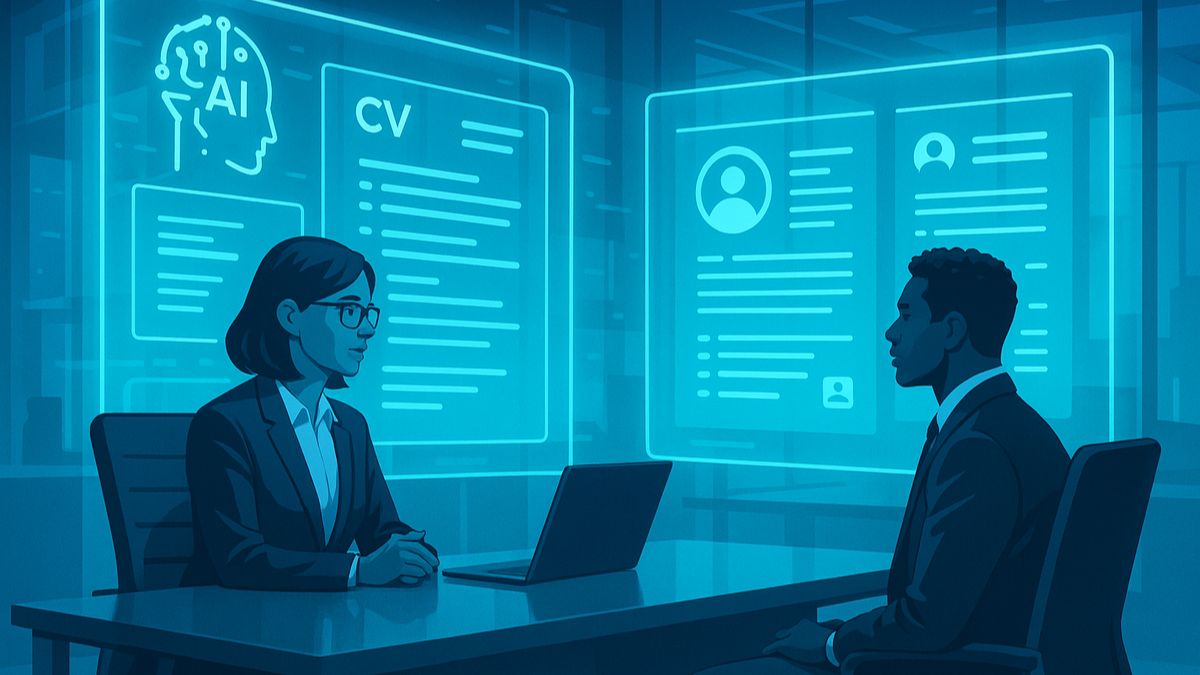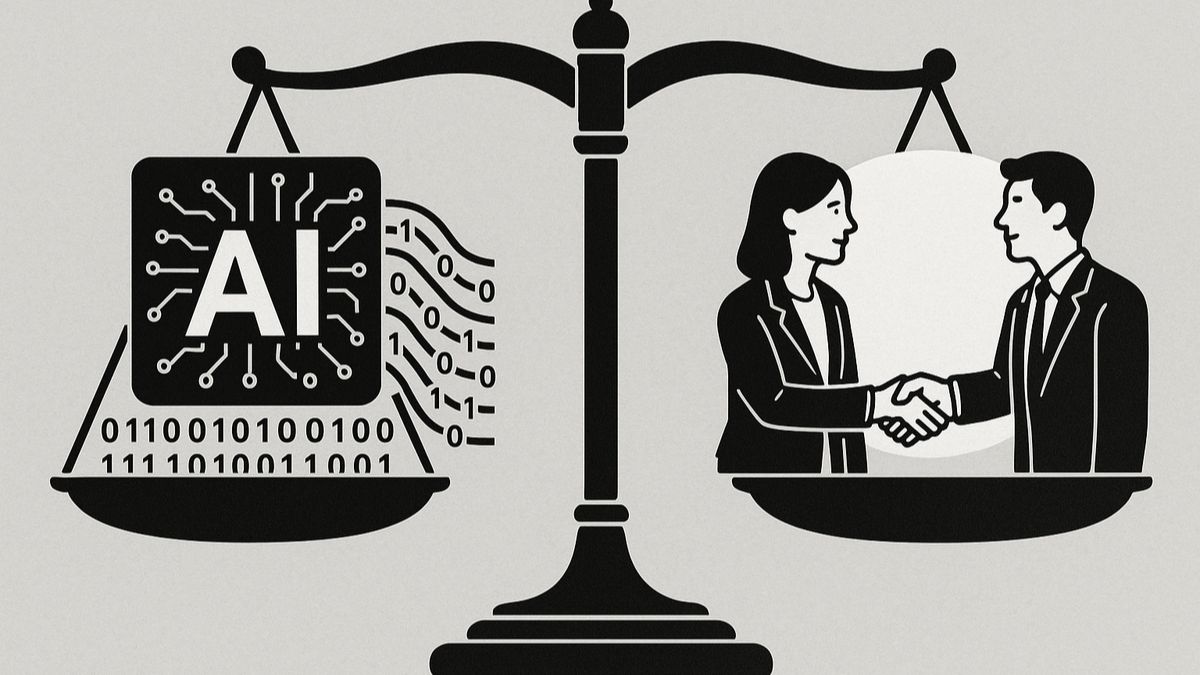AI Recruitment Takeover: Artificial Intelligence (AI) is no longer a futuristic concept; it is already transforming industries, reshaping workplaces, and redefining recruitment. From automated job postings to AI-powered resume screening, the AI recruitment takeover is well underway. Yet, amidst this technological revolution, one fundamental truth remains: human skills still matter most.
Recruitment is not just about filling positions; it’s about building teams, nurturing culture, and making decisions that shape the future of organisations. While AI brings speed, efficiency, and predictive power, the irreplaceable human touch provides empathy, ethical judgement, and cultural alignment.
The AI Recruitment Takeover Explained
The term “AI Recruitment Takeover” refers to the increasing use of algorithms, machine learning, and predictive analytics in hiring processes. Key applications include:
Automated Resume Screening: AI tools can scan thousands of applications in seconds, ranking candidates based on job requirements.
Chatbots for Pre-Screening: AI-powered chatbots conduct initial interviews, answer FAQs, and assess communication skills.
Predictive Analytics: Systems forecast candidate success, reducing turnover by analysing historical hiring data.
Bias Detection: Some platforms claim to minimise human bias by focusing solely on skill-based metrics.
AI Recruitment Takeover: These advancements make hiring faster, cheaper, and more data-driven. However, they also raise important questions:Are we sacrificing human connection for efficiency? Can AI truly understand the nuances of human potential?
Why Human Skills Still Matter
 1. Emotional Intelligence
1. Emotional Intelligence
AI can analyse words, tone, and even micro-expressions, but it cannot feel. Recruiters who listen with empathy can sense hesitation, passion, or authenticity in ways machines cannot replicate. Emotional intelligence builds trust, both with candidates and employers.
2. Cultural Fit
Algorithms can evaluate qualifications, but understanding whether a candidate will thrive in a company’s culture requires human judgement. Culture is dynamic, often shaped by shared values, traditions, and unspoken norms that AI cannot quantify. AI in recruitment.
3. Ethical Judgment
Hiring decisions impact lives. Humans are better positioned to navigate ethical concerns, such as avoiding discrimination, ensuring fair opportunities, and considering social responsibilities beyond raw performance data. Quick look.
4. Complex Decision-Making
Recruitment often involves balancing skills, team dynamics, salary expectations, and growth potential. While AI can suggest matches, recruiters weigh these factors holistically, adapting strategies based on evolving contexts.
5. Personal Connection
A candidate’s journey is emotional filled with hope, stress, and ambition. Human recruiters provide reassurance, encouragement, and transparency, building long-term relationships that no algorithm can replicate.
Risks of an Overreliance on AI
The AI recruitment takeover offers speed and efficiency, but overdependence brings challenges:
Algorithmic Bias: If trained on biased data, AI can reinforce inequalities, filtering out qualified candidates unfairly.
Dehumanisation: Candidates may feel like numbers, not individuals, when interacting only with machines.
Data Privacy: Sensitive personal data handled by AI systems raises privacy and security concerns.
Loss of Innovation: Human recruiters often spot unconventional talent with unique potential something AI might overlook.
These risks emphasise the need for balance, not replacement. Recruitment process.
The Future: Human-AI Collaboration
AI Recruitment Takeover: The future of recruitment is not about AI replacing humans; it’s about AI augmenting human capabilities. Organisations that thrive will be those that combine the efficiency of AI with the intuition of humans. Powered by AI.
Best Practices for Human-AI Recruitment Integration:
Use AI for Administrative Tasks: Let machines handle resume parsing, scheduling, and initial screenings.
Empower Recruiters with Insights: Provide recruiters with data-driven recommendations, but leave the final decision to humans.
Focus on Soft Skills: Recruiters should prioritise qualities like adaptability, creativity, and leadership potential traits AI cannot measure reliably.
Maintain Transparency: Communicate clearly with candidates about the use of AI in the hiring process.
Commit to Ethical Standards: Regularly audit AI tools for fairness, inclusivity, and compliance with global HR regulations.
Why This Matters for Employers
AI Recruitment Takeover: In today’s competitive talent market, reputation matters. Candidates value authenticity and human connection. Companies that over-automate risk appearing cold, transactional, and out of touch. On the other hand, firms that leverage AI wisely while keeping recruiters at the heart of the process stand out as progressive yet people-centric.
Recruitment is, at its core, about people. Technology should empower, not replace, the human recruiters who shape careers and build organisational success.
Conclusion
The AI recruitment takeover is reshaping the hiring landscape at lightning speed. While AI delivers efficiency, accuracy, and scalability, the role of human skills remains irreplaceable. Emotional intelligence, ethical judgement, cultural alignment, and personal connection are essential ingredients in successful recruitment.
Instead of fearing an AI-driven future, HR leaders must embrace collaboration: AI for efficiency, humans for empathy. This balance ensures not only smarter hiring but also stronger, more resilient organisations.


 1. Emotional Intelligence
1. Emotional Intelligence